
Enchanting Trevi: The Jewel of Rome
Trevi, located in the heart of Rome, is a neighborhood that captivates visitors with its historic charm and vibrant atmosphere. The most iconic landmark here is the Trevi Fountain, an awe-inspiring masterpiece of Baroque art. Legend has it that throwing a coin into the fountain ensures a return to Rome, making it a must-visit ritual for tourists. Wandering through the narrow streets of Trevi, you’ll encounter a mix of traditional trattorias, trendy cafes, and artisan shops. The area is perfect for leisurely strolls, offering glimpses of beautiful architecture and hidden courtyards. Don't miss the chance to explore the nearby Quirinal Palace, the official residence of the President of Italy, which showcases stunning gardens and magnificent interiors. Trevi is also home to several charming squares where you can relax and soak in the local atmosphere. Piazza di Trevi, in particular, offers a picturesque setting with its lively ambiance and street performers. As evening falls, the neighborhood transforms into a romantic haven, with its softly lit streets and the sound of flowing water from the fountain providing a magical backdrop.
Local tips in Trevi
- Visit early in the morning or late at night to avoid crowds at the Trevi Fountain.
- Try the gelato from the local shops near the fountain; it's considered some of the best in Rome.
- Wear comfortable shoes as the cobbled streets can be hard on your feet after a long day of exploring.
- Keep some coins handy for the Trevi Fountain coin-throwing tradition.
- Explore the nearby Quirinal Hill for stunning views and historical landmarks.
Enchanting Trevi: The Jewel of Rome
Trevi, located in the heart of Rome, is a neighborhood that captivates visitors with its historic charm and vibrant atmosphere. The most iconic landmark here is the Trevi Fountain, an awe-inspiring masterpiece of Baroque art. Legend has it that throwing a coin into the fountain ensures a return to Rome, making it a must-visit ritual for tourists. Wandering through the narrow streets of Trevi, you’ll encounter a mix of traditional trattorias, trendy cafes, and artisan shops. The area is perfect for leisurely strolls, offering glimpses of beautiful architecture and hidden courtyards. Don't miss the chance to explore the nearby Quirinal Palace, the official residence of the President of Italy, which showcases stunning gardens and magnificent interiors. Trevi is also home to several charming squares where you can relax and soak in the local atmosphere. Piazza di Trevi, in particular, offers a picturesque setting with its lively ambiance and street performers. As evening falls, the neighborhood transforms into a romantic haven, with its softly lit streets and the sound of flowing water from the fountain providing a magical backdrop.
Iconic landmarks you can’t miss
Trevi Fountain
Discover the Trevi Fountain, a stunning Baroque masterpiece in the heart of Rome, where tradition meets beauty in an unforgettable experience.
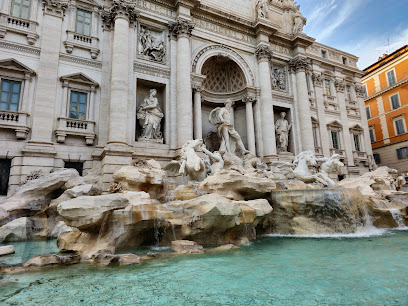
Le Domus Romane di Palazzo Valentini
Explore the enchanting ruins of ancient Roman houses at Le Domus Romane di Palazzo Valentini, where history comes alive through innovative experiences.
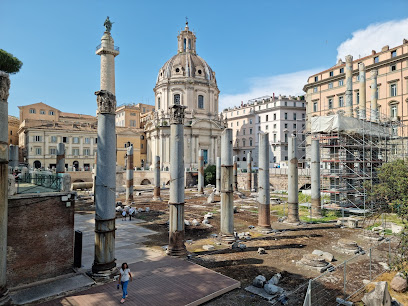
Galleria Sciarra
Discover the artistic elegance of Galleria Sciarra, a serene architectural gem in the heart of Rome, adorned with breathtaking frescoes and rich cultural history.
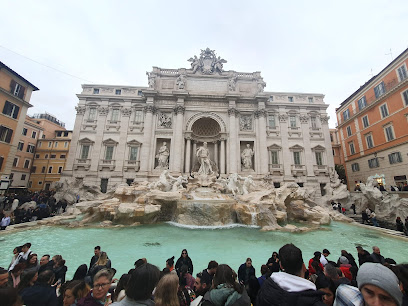
Giardini del Quirinale
Experience the tranquil beauty and rich history of Giardini del Quirinale, a serene garden oasis in the heart of Rome.
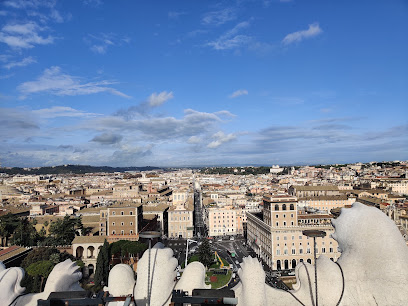
Palazzo Poli
Explore the architectural splendor and historical significance of Palazzo Poli, a hidden gem in the heart of Rome that enchants every traveler.
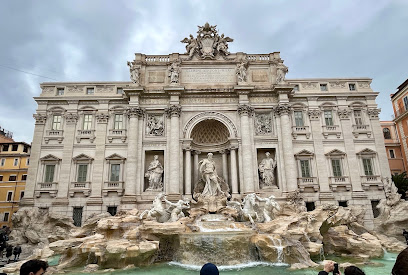
Piazza del Quirinale
Explore the breathtaking beauty and rich history of Piazza del Quirinale, a stunning plaza in Rome surrounded by magnificent architecture and lush gardens.
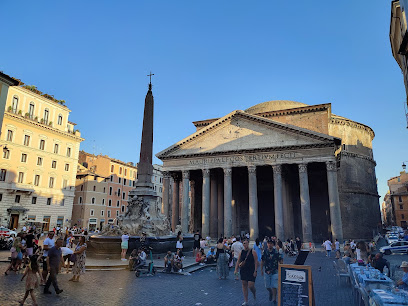
Statue Romane
Explore the Statue Romane, a stunning landmark embodying Rome's rich history and artistry, perfect for capturing unforgettable memories.
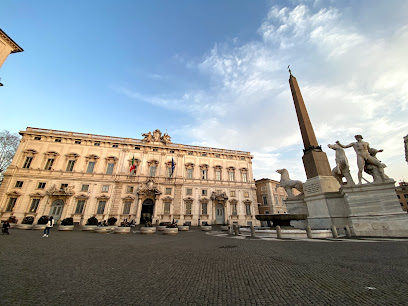
Fontana delle Bagnanti
Discover the stunning Fontana delle Bagnanti in Rome, an exquisite fountain that embodies the city's artistic heritage and offers a serene escape for tourists.
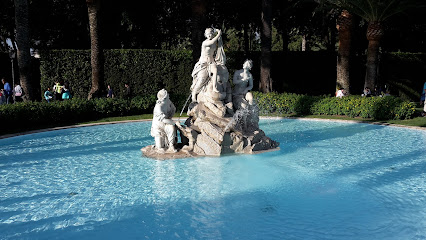
Fountain of Palazzo Antamoro
Explore the Fountain of Palazzo Antamoro, a historic gem in Rome that combines artistry and tranquility, perfect for a serene escape amidst the city's vibrancy.
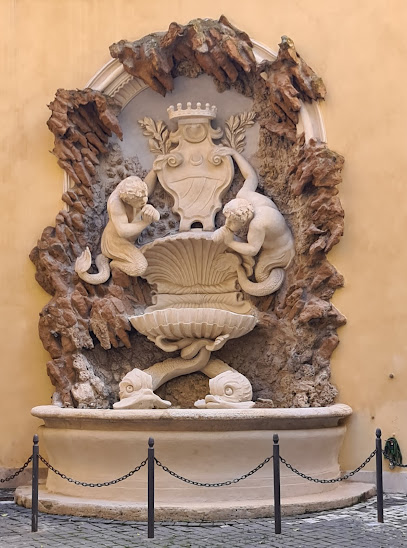
Croce di Via dei Lucchesi
Discover the charm of Croce di Via dei Lucchesi, a hidden treasure in Rome that reflects the city's rich history and artistic beauty.
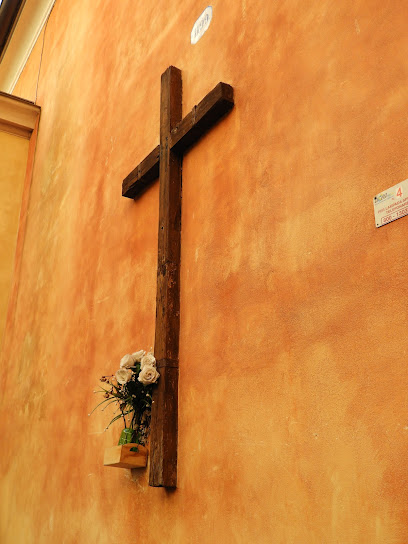
Piazza di Trevi
Explore the enchanting Piazza di Trevi, home to the stunning Trevi Fountain, where wishes are made and memories are created in the heart of Rome.
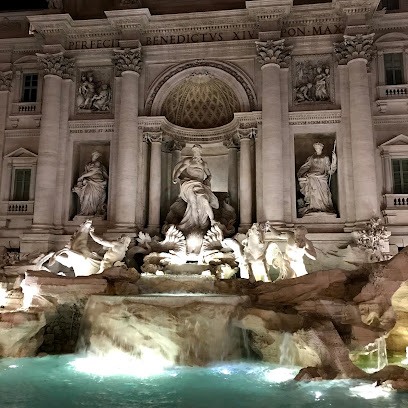
Unmissable attractions to see
Piazza di Spagna
Explore the breathtaking beauty and rich history of Piazza di Spagna, a must-see landmark in the heart of Rome, Italy.
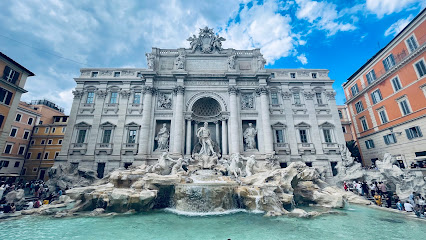
Spanish Steps
Discover the enchanting beauty and vibrant atmosphere of the Spanish Steps, a must-visit monument in the heart of Rome, Italy.
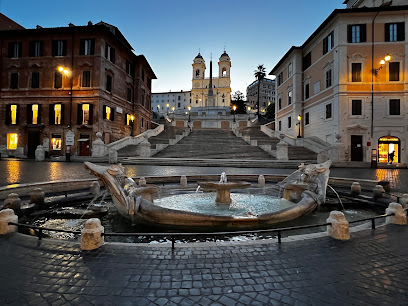
Piazza Barberini
Explore the vibrant Piazza Barberini, a historical plaza in Rome featuring Bernini's stunning Fontana del Tritone and a lively atmosphere perfect for travelers.
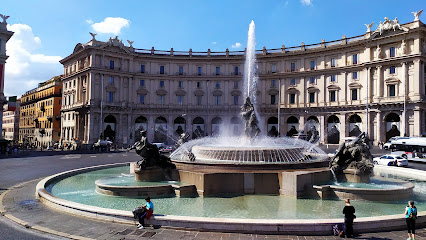
Fontana del Tritone
Discover the beauty and charm of Fontana del Tritone, a stunning baroque fountain in Rome's vibrant Piazza Barberini, perfect for photo opportunities and relaxation.
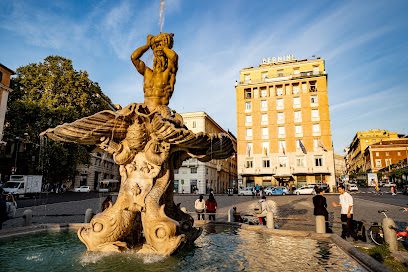
Fontana della Barcaccia
Discover the Fontana della Barcaccia in Piazza di Spagna, a stunning baroque fountain by Bernini, blending art and history in the heart of Rome.
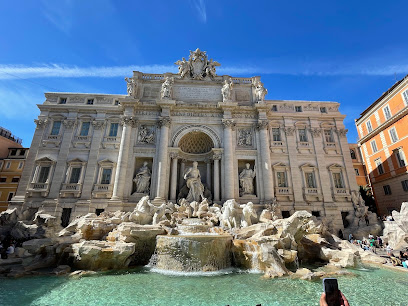
Statue Romane
Discover the enchanting Statue Romane, a breathtaking symbol of Rome's rich history and artistic heritage, perfect for captivating memories and stunning photos.
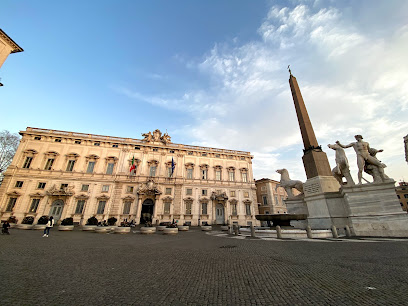
Croce di Via dei Lucchesi
Explore the hidden charm of Croce di Via dei Lucchesi, a serene escape in Rome steeped in history and picturesque architecture.
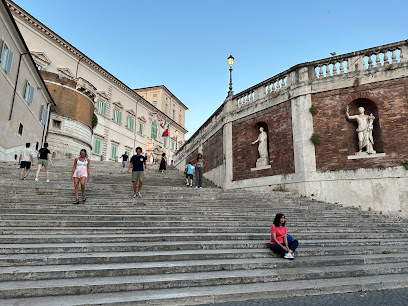
Essential places to dine
That's Amore Restaurant
Experience authentic Italian cuisine at That's Amore Restaurant in Rome - where every dish tells a story of tradition and flavor.
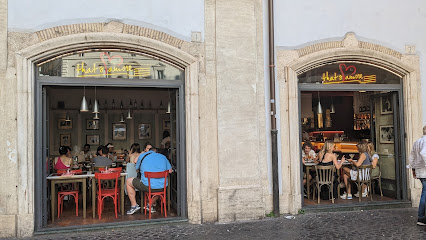
Il Chianti Vineria
Discover Il Chianti Vineria: A culinary oasis in Rome serving authentic Italian dishes and exquisite wines for an unforgettable dining experience.
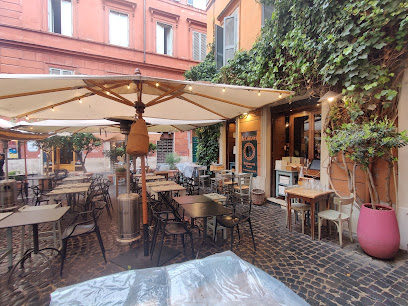
Piccolo Arancio
Experience authentic Italian cuisine at Piccolo Arancio in Rome - where every meal tells a story of tradition and flavor.
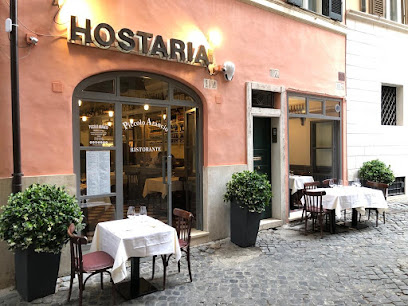
Sphaeristerium
Experience authentic Italian flavors at Sphaeristerium - where tradition meets culinary excellence in the heart of Rome.
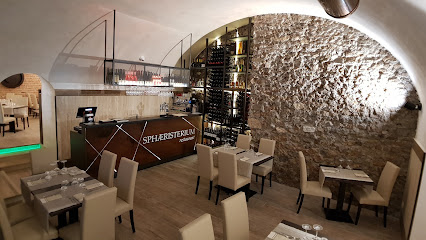
Antica Fontana Di Trevi
Experience authentic Italian dining at Antica Fontana Di Trevi, where delicious pizza meets Roman hospitality in a charming setting.
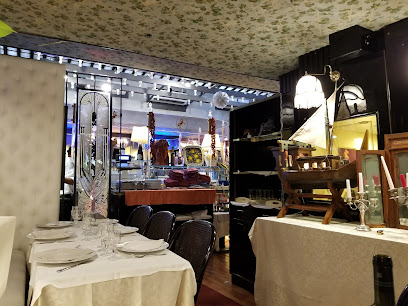
Mangia e Trevi
Experience authentic Italian cuisine at Mangia e Trevi, where every meal is a journey through Italy's rich culinary traditions in Rome.
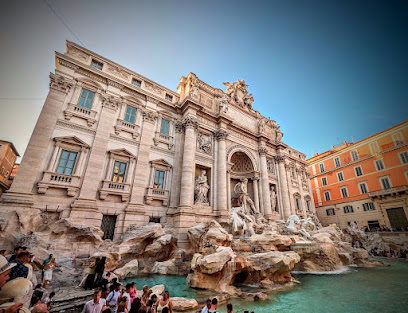
Ristorante Taberna Patrizi e Plebei
Experience authentic Italian cuisine at Ristorante Taberna Patrizi e Plebei in the heart of Rome—where tradition meets flavor.
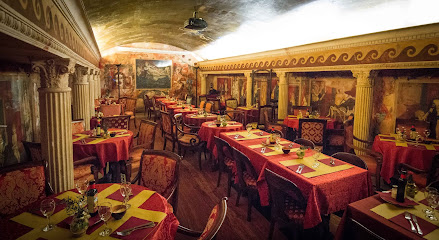
Locanda Giulietta e Romeo
Discover authentic Italian cuisine at Locanda Giulietta e Romeo, where charm meets flavor in the heart of Rome's vibrant streets.
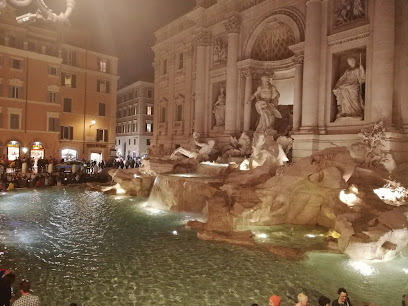
La fontana di Venere
Experience authentic Italian cuisine at La Fontana di Venere in Rome - where tradition meets taste in a charming setting.
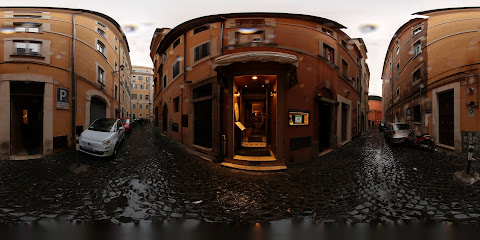
Hostaria Trevi
Discover authentic Italian flavors at Hostaria Trevi – where every dish is crafted with passion in the heart of Rome.
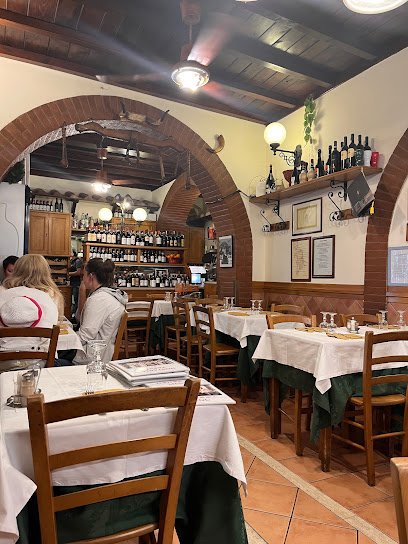
Markets, malls and hidden boutiques
Souvenir Roma
Discover a unique blend of Italian craftsmanship and charming souvenirs at Souvenir Roma, the ultimate gift shop in the heart of Rome.
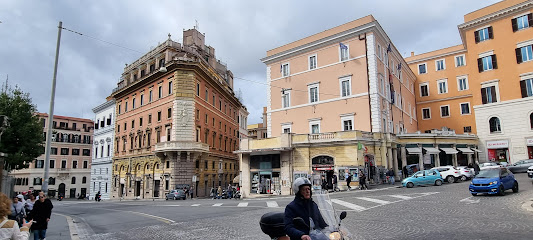
Trevi Gallery Roma
Explore the Trevi Gallery in Rome for exquisite Murano glass crafts and unique souvenirs that capture the essence of Italian artistry.
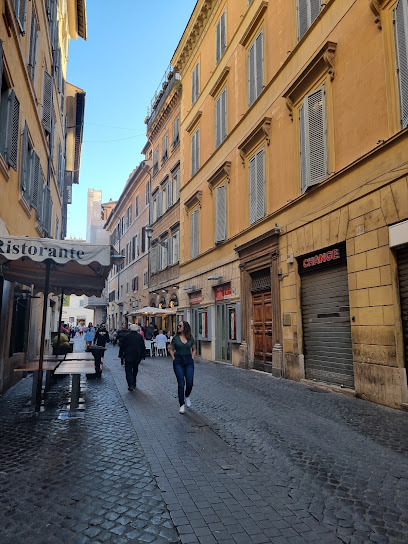
Souvenirs Shop - Best Price Souvenirs in Rome
Explore an enchanting collection of affordable souvenirs that perfectly capture the magic of Rome's rich heritage and vibrant culture.
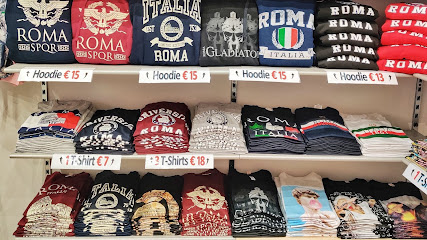
Souvenir Italia
Discover unique Italian souvenirs at Souvenir Italia, where every gift tells a story of culture and craftsmanship.

TREVI RELIGIOUS ARTICLES
Discover unique religious souvenirs and luggage storage at Trevi Religious Articles, a must-visit shop in the heart of Rome's iconic Piazza di Trevi.
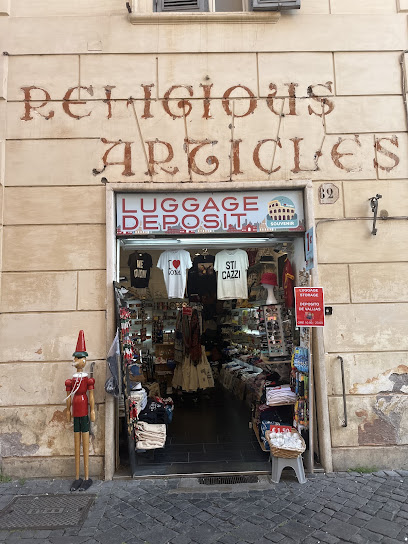
The Best of Made in Italy Roma
Discover the essence of Italian elegance at The Best of Made in Italy Roma, offering exquisite formal wear and personalized service in the heart of Rome.
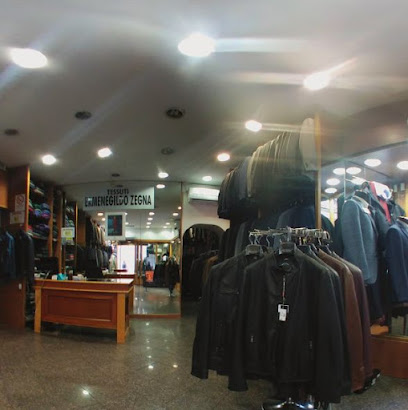
Aromi & Sapori
Discover unique souvenirs at Aromi & Sapori, a charming gift shop in Rome offering local crafts and delicacies.
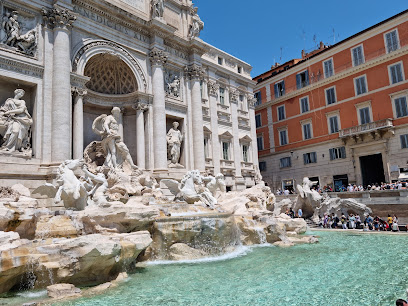
Souvenir fountain
Discover the essence of Rome at Souvenir Fountain, where unique keepsakes and local artistry come together to create unforgettable memories.
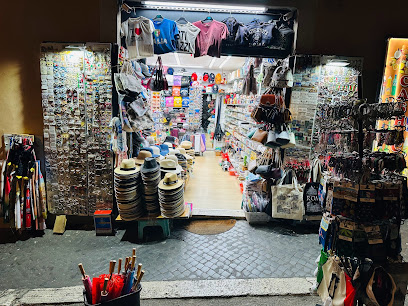
Souvenire Felles Roma
Explore the charm of Italy at Souvenire Felles Roma, your go-to gift shop for authentic Roman souvenirs and unique treasures.
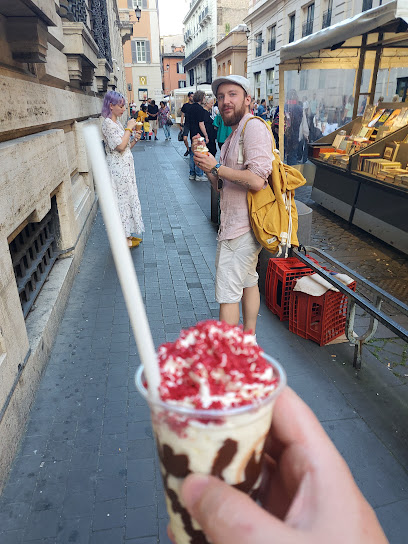
Drogueria
Discover the charm of Rome at Drogueria, a delightful gift shop offering unique souvenirs and local delicacies that capture Italy's rich culture.
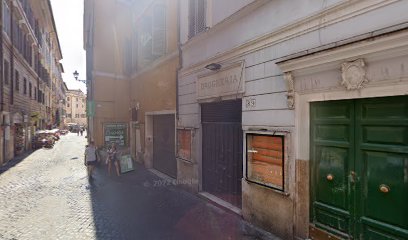
Essential bars & hidden hideouts
Il Chianti Vineria
Experience the vibrant flavors of Tuscany at Il Chianti Vineria, where authentic Italian cuisine meets a charming Roman atmosphere.
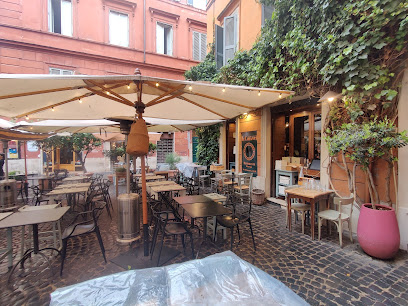
Pepy's Bar
Discover the vibrant atmosphere and extensive drink selections at Pepy's Bar, a local favorite in the heart of Rome.
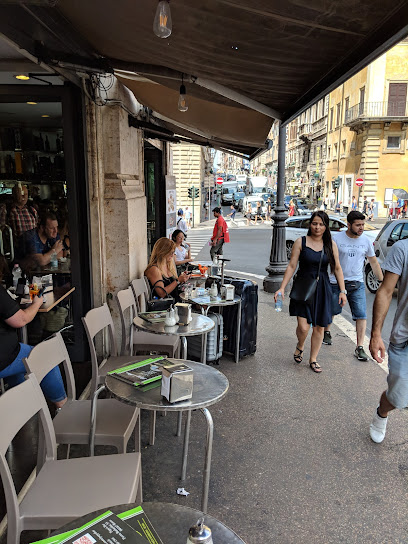
The Albert
Experience the vibrant nightlife of Rome at The Albert, a cozy pub serving delightful drinks and local flavors in a welcoming atmosphere.
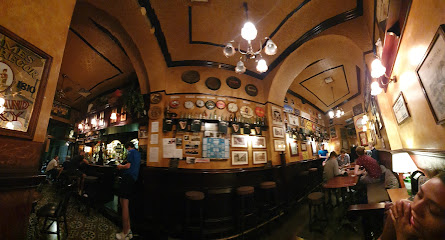
Bar Fontana di Trevi
Discover the delightful Bar Fontana di Trevi, a charming spot for gelato and drinks near Rome's iconic Trevi Fountain.
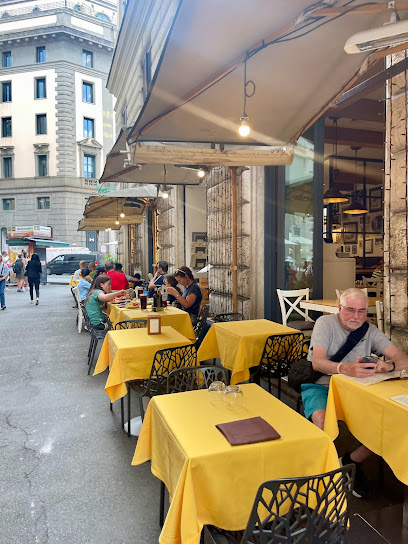
b-cool Bistrot and Cocktail bar Roma
Experience authentic Italian cuisine and creative cocktails at b-cool Bistrot and Cocktail Bar in Rome's vibrant atmosphere.
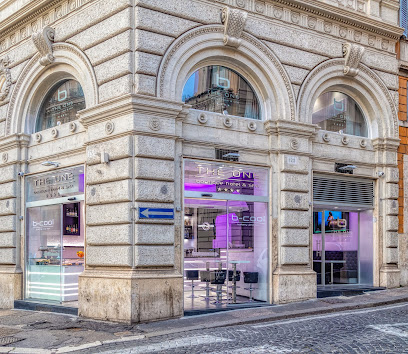
RoofTop Lounge Trevi
Discover the breathtaking views and exquisite cocktails at RoofTop Lounge Trevi, a premier destination for tourists in Rome.
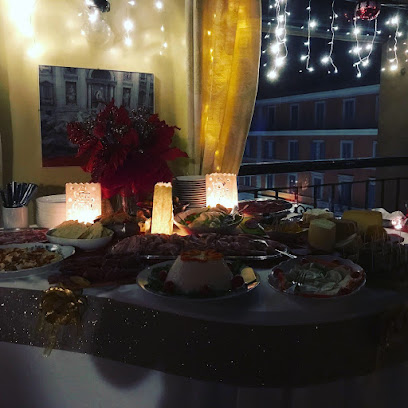
Trevi sushibar
Experience the perfect blend of sushi and cocktails at Trevi Sushibar, a vibrant spot in the heart of Rome's historic charm.
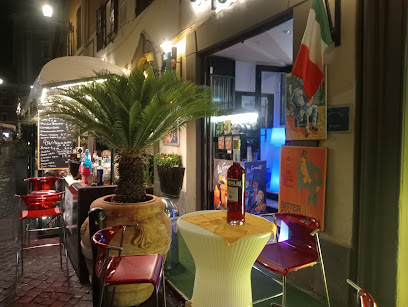
Il Tino di Vino
Discover the essence of Italian wine culture at Il Tino di Vino, a cozy wine bar in Rome’s vibrant streets.
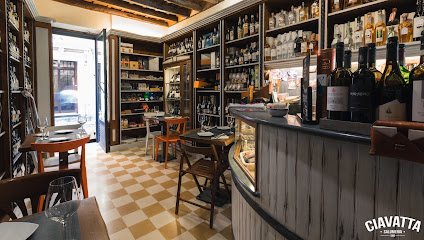
8 e 1/2 Cocktail & Wine bar
Experience the best of cocktail and wine culture at 8 e 1/2 Cocktail & Wine Bar, a stylish gem in the heart of Rome.
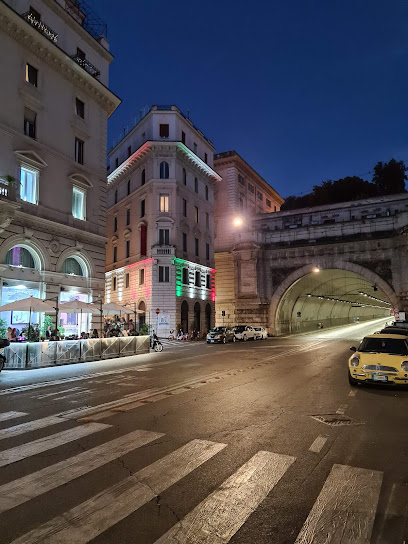
Best sandwiches and water fountain
Discover the best sandwiches in Rome at this charming bar featuring a tranquil water fountain, perfect for a relaxing culinary experience.
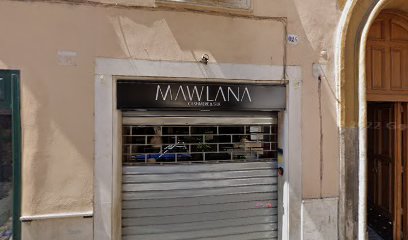
Local Phrases
-
- HelloCiao
[chow] - GoodbyeArrivederci
[ah-ree-veh-dehr-chee] - YesSì
[see] - NoNo
[noh] - Please/You're welcomePer favore
[pehr fah-voh-reh] - Thank youGrazie
[grah-tsyeh] - Excuse me/SorryMi scusi
[mee skoo-zee] - How are you?Come stai?
[koh-meh stah-ee] - Fine. And you?Bene. E tu?
[beh-neh. eh too] - Do you speak English?Parli inglese?
[pahr-lee een-gleh-zeh] - I don't understandNon capisco
[nohn kah-pee-skoh]
- HelloCiao
-
- I'd like to see the menu, pleaseVorrei vedere il menù, per favore
[vohr-ray veh-deh-reh eel meh-noo, pehr fah-voh-reh] - I don't eat meatNon mangio carne
[nohn mahn-joh kahr-neh] - Cheers!Salute!
[sah-loo-teh] - I would like to pay, pleaseVorrei pagare, per favore
[vohr-ray pah-gah-reh, pehr fah-voh-reh]
- I'd like to see the menu, pleaseVorrei vedere il menù, per favore
-
- Help!Aiuto!
[ah-yoo-toh] - Go away!Vai via!
[vah-ee vee-ah] - Call the Police!Chiama la polizia!
[kyah-mah lah poh-lee-tsyah] - Call a doctor!Chiama un dottore!
[kyah-mah oon doh-toh-reh] - I'm lostMi sono perso
[mee soh-noh pehr-soh] - I'm illSto male
[stoh mah-leh]
- Help!Aiuto!
-
- I'd like to buy...Vorrei comprare...
[vohr-ray kohm-prah-reh] - I'm just lookingSto solo guardando
[stoh soh-loh gwar-dahn-doh] - How much is it?Quanto costa?
[kwahn-toh koh-stah] - That's too expensiveÈ troppo caro
[eh trohp-poh kah-roh] - Can you lower the price?Puoi abbassare il prezzo?
[pwah-ee ahb-bahs-sah-reh eel preh-tsoh]
- I'd like to buy...Vorrei comprare...
-
- What time is it?Che ora è?
[keh oh-rah eh] - It's one o'clockÈ l'una
[eh loo-nah] - Half past (10)Sono le dieci e mezza
[soh-noh leh dyeh-chee eh meh-tsah] - MorningMattina
[maht-tee-nah] - AfternoonPomeriggio
[poh-meh-ree-joh] - EveningSera
[seh-rah] - YesterdayIeri
[yeh-ree] - TodayOggi
[oh-jee] - TomorrowDomani
[doh-mah-nee] - 1Uno
[oo-noh] - 2Due
[doo-eh] - 3Tre
[treh] - 4Quattro
[kwah-troh] - 5Cinque
[cheen-kweh] - 6Sei
[seh-ee] - 7Sette
[seht-teh] - 8Otto
[oh-toh] - 9Nove
[noh-veh] - 10Dieci
[dyeh-chee]
- What time is it?Che ora è?
-
- Where's a/the...?Dov'è...?
[doh-veh] - What's the address?Qual è l'indirizzo?
[kwahl eh leen-dee-ree-tsoh] - Can you show me (on the map)?Puoi mostrarmi (sulla mappa)?
[pwah-ee mohs-trar-mee soo-lah mahp-pah] - When's the next (bus)?Quando passa il prossimo (autobus)?
[kwahn-doh pahs-sah eel prohss-see-moh ow-toh-boo] - A ticket (to ....)Un biglietto (per ....)
[oon beel-lyeh-toh pehr]
- Where's a/the...?Dov'è...?
History of Trevi
-
The Trevi district has its roots in ancient Rome, with evidence of habitation dating back to the Roman Republic. The area was known for its strategic location and served as a vital junction for aqueducts supplying water to the city. The Aqua Virgo, constructed in 19 BC, is one of the most significant aqueducts that still influences the district today.
-
The Trevi Fountain, completed in 1762, exemplifies the Baroque architectural style and is one of the most iconic landmarks in Rome. Designed by Nicola Salvi, the fountain reflects the grandeur of the period and symbolizes the importance of water in Roman culture. The fountain's intricate sculptures depict the sea god Oceanus and allegorical figures representing abundance and health.
-
The tradition of tossing a coin into the Trevi Fountain dates back to the 1950s, popularized by the film 'Roman Holiday.' Legend has it that throwing a coin over your shoulder into the fountain ensures a return to Rome. This custom has turned the fountain into a significant cultural symbol, attracting millions of visitors each year.
-
During World War II, the Trevi district was significantly impacted by the war's devastation. Bombing raids damaged many buildings, but the Trevi Fountain miraculously survived. Post-war reconstruction efforts led to the revitalization of the area, preserving its historical charm while integrating modern amenities.
-
Today, the Trevi district is a vibrant cultural hub in Rome, filled with cafes, shops, and art galleries. It remains a focal point for both tourists and locals, celebrated not only for its historical significance but also as a gathering place for social and cultural events. The district's blend of history and modernity continues to captivate visitors from around the world.
Trevi Essentials
-
Trevi is centrally located in Rome and can be accessed easily from other neighborhoods. The nearest metro stations are Barberini (Line A) and Spagna (Line A), both within walking distance. Buses also service the area; routes 62, 95, and 492 stop nearby. For those arriving from the main train station, Termini, take Metro Line A towards Battistini and disembark at Barberini. Taxis are available throughout the city, and rideshare services like Uber operate in Rome as well.
-
Trevi is a compact neighborhood best explored on foot, as many attractions are close together. Public transport options include buses and the metro, but walking allows you to appreciate the architecture and atmosphere. If you prefer cycling, bike-sharing services are available, but be cautious of traffic. Taxis and rideshare apps are also good options for longer distances or late-night returns.
-
Trevi is generally a safe area for tourists, but standard precautions should be taken. Avoid poorly lit streets at night, and watch for pickpockets, especially in crowded areas like the Trevi Fountain. Be cautious in the vicinity of Termini Station, as it has higher reports of petty crime targeting tourists. Always keep your belongings secure and remain aware of your surroundings.
-
In case of an emergency, dial 112 for police, fire, or medical assistance. The nearest hospital is Ospedale Santo Spirito, located a short distance from Trevi. It's advisable to have travel insurance that covers emergencies. For minor health issues, pharmacies are plentiful and often display a green cross sign when open.
-
Fashion: Do wear comfortable shoes for walking. Avoid flip-flops or overly casual attire in restaurants. Religion: Do dress modestly when visiting churches; shoulders and knees should be covered. Public Transport: Do validate your ticket before boarding. Don't block doors when exiting. Greetings: Do greet locals with a friendly 'Buongiorno' or 'Buonasera.' Don't be overly familiar with strangers. Eating & Drinking: Do enjoy gelato and local cuisine at outdoor cafes. Don't eat while walking, as it's considered impolite.
-
To experience Trevi like a local, visit the smaller, less touristy restaurants and cafes tucked away from the main squares. Try to engage with shopkeepers and locals; their stories and recommendations can enhance your visit. Early mornings are a great time to visit the Trevi Fountain to avoid crowds. For a unique perspective, consider enjoying an aperitivo at a nearby rooftop bar.
Nearby Cities to Trevi
-
Things To Do in St. Peter's Square
-
Things To Do in Apostolic Palace
-
Things To Do in Sistine Chapel
-
Things To Do in Vatican Necropolis
-
Things To Do in St. Peter's Basilica
-
Things To Do in Gregorian Etruscan Museum
-
Things To Do in Vatican Museums
-
Things To Do in Vatican Pinacoteca
-
Things To Do in Vatican Gardens
-
Things To Do in Orvieto
-
Things To Do in Assisi
-
Things To Do in Perugia
-
Things To Do in Montepulciano
-
Things To Do in Arezzo
-
Things To Do in Siena













